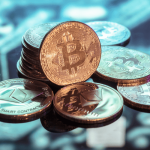
The Legal Implications of NFTs in Gaming: What are the Risks and Opportunities?
- Antonio Anderson
- March 11, 2023
- NFT
- blockchain, Gaming industry, Intellectual Property Rights, legal implications, nft
- 0 Comments
With the increasing popularity of non-fungible tokens (NFTs) in the gaming industry, it is important to understand the legal implications of their use. NFTs can revolutionize gaming by giving players ownership and control over in-game assets. However, the use of NFTs in gaming raises a number of legal questions that need to be addressed. This article will explore the risks and opportunities associated with NFTs in gaming from a legal perspective.
What are NFTs?
Before delving into the legal implications of NFTs in gaming, it is important to understand what they are. NFTs are unique digital assets stored on a blockchain, a decentralized digital ledger that records transactions. Unlike fungible tokens such as Bitcoin, NFTs are unique and cannot be exchanged for other tokens on a one-to-one basis. NFTs are often used to represent digital art, music, or other creative works, but they can also be used in gaming to represent in-game assets such as weapons, armor, and virtual real estate.
Ownership and Control of In-Game Assets
One of the main advantages of NFTs in gaming is that they give players ownership and control over in-game assets. With traditional video games, players do not own the assets they acquire. Instead, they are subject to the terms and conditions of the game developer, who may restrict how those assets can be used or transferred. With NFTs, however, players have true ownership of their in-game assets, which can be transferred to other players or sold for real money. This creates new opportunities for players to monetize their gaming experience.
Intellectual Property Rights
One of the legal risks associated with NFTs in gaming is the potential infringement of intellectual property rights. Game developers may own the copyright to the in-game assets, and players may infringe on those rights by creating NFTs representing those assets. Additionally, players may infringe on the rights of third-party creators who have designed the in-game assets. It is important for game developers to consider how NFTs will impact their intellectual property rights and for players to be aware of the potential legal risks associated with creating and trading NFTs.
Money Laundering and Fraud
Another legal risk associated with NFTs in gaming is the potential for money laundering and fraud. Because NFTs can be bought and sold for real money, they may be used to launder or engage in fraudulent activities. Game developers and NFT marketplaces must take steps to prevent these types of activities, such as implementing Know Your Customer (KYC) procedures and conducting due diligence on buyers and sellers.
Tax Implications
NFTs in gaming also have tax implications that need to be considered. When NFTs are sold for a profit, they may be subject to capital gains taxes. Additionally, game developers may need to pay taxes on the income generated by the sale of NFTs within their game. It is important for players and game developers to consult with tax professionals to understand their tax obligations related to NFTs in gaming.
Regulatory Frameworks
The use of NFTs in gaming raises questions about regulatory frameworks. Because NFTs are a relatively new technology, there may not be clear regulations to govern their use. Game developers and NFT marketplaces must be aware of any existing regulations that apply to their activities. They should consult with legal professionals to ensure applicable laws and regulations compliance.
Conclusion
NFTs can revolutionize gaming by giving players ownership and control over in-game assets. However, the legal implications of NFTs in gaming cannot be ignored. Game developers, players, and NFT marketplaces must be aware of the potential legal risks associated with their use and take steps to mitigate them. Additionally, regulators may need to develop new frameworks to govern the use of NFTs in gaming. Despite these challenges, the opportunities presented by NFTs in gaming are too significant to ignore. With careful consideration and attention to legal risks, NFTs can provide a new level of innovation and value to the gaming industry.





